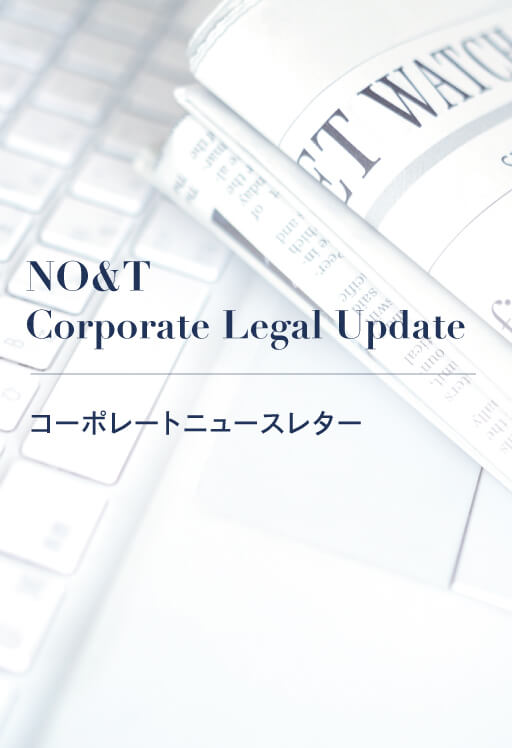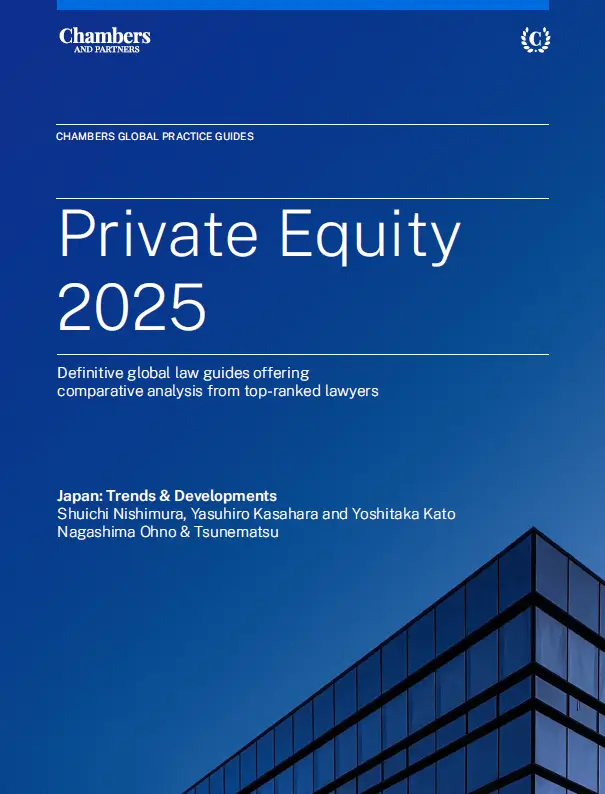
NO&T Corporate Legal Update
This article is also available in Japanese.
On January 1, 2021, significant amendments to Australia’s Foreign Acquisitions and Takeovers Act 1975 (“FATA”) came into effect. These amendments have resulted in certain foreign investments in Australian land and business being subject to review by the Australian Federal Government irrespective of the investment monetary amount. Further, amendments to the Security of Critical Infrastructure Act 2018 (the “SOCI Act”) also became effective in December, 2021. These recent legislative changes related to foreign investment in Australia may have a significant impact on the investment decisions of companies considering expansion in Australia or those who have already done so.
This newsletter briefly introduces the basic framework for regulating foreign investment in Australia and explains the key points of the amendment to FATA and the related impact of recent amendments to the SOCI Act.
Restrictions on foreign investment in Australia are governed by FATA and its associated regulations. The Australian Federal Government, in principle, welcomes foreign investment, but for certain types of foreign investment, foreign investors are required to provide prior notification and submit an application to the Foreign Investment Review Board (“FIRB“). FIRB advises the Treasurer, who makes the final determination on whether to approve the foreign investment. In making that determination, the Treasurer considers various factors on a case-by-case basis to determine whether the investment is contrary to Australia’s ‘national interest’ or ‘national security’.
The requirement of a foreign investor to provide prior notification to FIRB depends on a number of factors including:
Notification of foreign investment must be made through an online form and the prescribed application fee must be paid at the time of filing. Unless an extension is made※1, the statutory examination period is 30 days, calculated from the date of receipt of the application fee. Failure to comply with the required notification obligation or violation of other foreign investment regulations may result in civil sanctions, including the unwinding of a transaction, or criminal penalties.
Foreign investors subject to Australian foreign investment regulations include:
The recent amendments to FATA were implemented with the purpose of strengthening regulations on foreign investment, consistent with the recent trend toward tighter regulations on foreign investment in major economies such as Japan, the United States, and China. While the full scope of the amendments covers various aspects of FATA’s operation※2, the key practical amendments to Australia’s foreign investment regime are:
The amendments to FATA came into force on 1 January 2021 introduced a new national security test for certain types of foreign investment. Previously, the approval standard was the ‘national interest test’. “National interest” is not defined in Australian legislation and the Treasurer has discretion to take a wide range of considerations into account when deciding whether certain proposed foreign investments are contrary to the Australian national interest. Those considerations typically include (i) national security, (ii) impact on competition in the Australian market, (iii) other Australian Government policies, such as tax or environmental policies, (iv) impact on the Australian economy and community, and (v) the character of the investor.
The introduction of the new national security test does not supersede the existing national interest test but rather operates consecutively. Investments that do not meet the notification requirements under the national interest test (i.e., no filing is required) will still require prior approval under the new national security test if the investment, regardless of the investment amount, is a “notifiable national security action”. A notifiable national security action is defined as any of the following:
A “National Security Business” refers to business conducted in whole or in part in Australia and which primarily falls under any of the following:
Similar to the national interest test, “national security” is not defined in Australian legislation and the Treasurer has discretion in its determination of whether a proposed investment would affect Australia’s ability to protect its strategic and security interests. The Treasurer is advised by the national security agencies on whether an investment would give rise to any national security concerns.
The recent amendments to FATA grant the Treasurer the power to review ex post facto investments that, at the time of making the investment, were not required to be reviewed and approved by FIRB but which the Treasurer or FIRB determines are a concern to Australia’s national security. The Treasurer’s Call-in power is only applicable to investments proposed or undertaken on or after January 1, 2021. The period during which the Call-in power can be exercised is limited to 10 years from the date of execution of the investment. When the Call-in power is exercised, the review period is the same as the review period for investment cases where the application to FIRB is ordinarily required. The Treasurer also has the same authority under the Call-in power to either approve the investment, impose conditions or make a disposal order depending on the outcome of the review.
This amendment has strengthened the powers of the Treasurer and potentially placed foreign investors at risk of having additional conditions imposed ex post facto or being forced to sell investments already made in Australia. In response to the uncertainty surrounding the exercise of the Call-in power, a new system has been introduced to allow foreign investors to proactively voluntarily apply to FIRB for confirmation that the proposed investment is not contrary to national security even if the nature of the investment does not meet the mandatory notification criteria. The application fee for voluntary applications by foreign investors is set at 25% of the fee for similar investments that are ordinarily required to apply to FIRB.
Whether or not a foreign investor makes a voluntary application should be judged strategically, taking into account (i) the degree of likelihood that the foreign investment will be considered to be a national security concern in the future, (ii) whether or not voluntary application is recommended by FIRB guidelines, and (iii) the degree of disruption caused by the voluntary application.
The amendments to FATA also grant the Treasurer the power to re-review an investment, impose new terms, change existing terms, or force the sale of an investment that has been made, if the Treasurer or FIRB determines that there is a national security concern. The last resort review power can only be exercised in respect of investments carried out on or after January 1, 2021.
Given that the authority that accompanies the Last Resort Review power is tremendous, its use is subject to the following safeguards:
The SOCI Act was enacted in 2018 to manage national security risks to Australia’s critical infrastructure. Against the backdrop of an increase in cyberattacks on international infrastructure in recent years, the amendment to the SOCI Act came into force in December, 2021, which significantly expanded the scope of the industries covered by the SOCI Act and strengthened the obligations of corporations※3 and the powers of the Australian Government.
Prior to the amendment in 2021, the SOCI Act was largely applicable only to the gas, electricity, water and port industries. The amendments to the SOCI Act have considerably expanded the definition of “Critical Infrastructure Assets” to include the following additional industries:
Importantly for foreign investors, businesses involved in the operation and maintenance of “critical infrastructure assets” fall under the category of a “national security business.” This means that any proposed acquisition of a direct interest in such a business by foreign investors, regardless of the monetary value, constitutes a notifiable national security action and is required to be approved by FIRB. Accordingly, the scope of foreign investment subject to mandatory FIRB review and approval has been significantly expanded and greatly increased the obligations and investment risk of foreign investors in the newly included industries.
During a time of global uncertainty, the Australian Government has taken steps to mirror actions taken by other major governments around the world to protect critical infrastructure and industries of national or strategic importance. At the same time, investors are seeking greater regulatory certainty around their cross-border investments. As the recent changes to Australia’s foreign investment regime are likely to have significant implications for international investors, potential investors should seek appropriate advice at the earliest of stages of the deal process in order to successfully navigate this rapidly changing regulatory environment.
*1
With the amendment to FATA in 2021, the Treasurer is authorized to extend the examination period up to a maximum of 180 days (up to 210 days including the statutory examination period of 30 days). According to FIRB’s 2019-20 Annual Report, the average review term was 48 days.
*2
In addition to the amendments discussed in this article, important changes have also been made in other areas of Australia’s foreign investment regime, such as the revision of the application fee system, revision of the system for extension of the examination period, reinforcement of the authority to enforce laws, and strengthening of sanctions and penalties in case of violation.
*3
Companies covered by the SOCI Act are obliged to (i) register critical infrastructure assets, (ii) respond to Government information gathering and interventions in the event of an incident, and (iii) report cyber incidents (as supplemented by the Amendment in 2021).
This newsletter is given as general information for reference purposes only and therefore does not constitute our firm’s legal advice. Any opinion stated in this newsletter is a personal view of the author(s) and not our firm’s official view. For any specific matter or legal issue, please do not rely on this newsletter but make sure to consult a legal adviser. We would be delighted to answer your questions, if any.


(September 2025)
Yasuhiro Kasahara, Masaki Mizukoshi, Yoshitaka Kato (Co-author)


Yusei Uji


(September 2025)
Shuichi Nishimura, Yasuhiro Kasahara, Yoshitaka Kato (Co-author)


Ichsan Montang, Valencia Wijaya (Co-author)


(September 2025)
Yasuhiro Kasahara, Masaki Mizukoshi, Yoshitaka Kato (Co-author)


Yusei Uji


(September 2025)
Shuichi Nishimura, Yasuhiro Kasahara, Yoshitaka Kato (Co-author)


Ichsan Montang, Valencia Wijaya (Co-author)


Supasit Boonsanong, Thananya Pholchaniko, Phareeya Yongpanich (Co-author)


Patricia O. Ko


Claire Chong, Nozomi Kato (Co-author)


Yuan Yao Lee


Supasit Boonsanong, Thananya Pholchaniko, Phareeya Yongpanich (Co-author)


Patricia O. Ko


Claire Chong, Nozomi Kato (Co-author)


Yuan Yao Lee